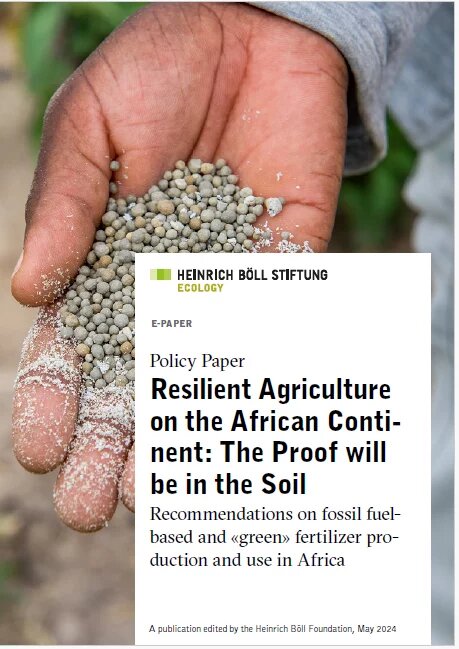Our Policy Brief provides recommendations on fossil fuel-based and ‘green’ fertilizer production and use in Africa.

Africa must find pathways to provide a better life for its people, including access to healthy and sustainably produced food. The situation is dire, with sixty percent of the world’s extremely poor populations living on the continent. In 2022, the number of people facing hunger in Africa increased by 57 million, as compared to pre-pandemic times, consequently affecting almost twenty percent of the population. As if not daunting enough, these formidable challenges will have to be resolved in increasingly volatile ecological and political climates. Tackling them will require brave choices that draw on the continent’s rich indigenous knowledge and biodiversity, combined with lessons and technology from other parts of the world, while leapfrogging the destructive development models of the 20th century.
Published before the start of the African Union’s Fertilizer and Soil Health Summit in Nairobi, this policy brief edited by the Heinrich Böll offices in Abuja, Berlin, Capetown and Nairobi takes a closer look at the role of synthetic fertilizers in African food systems. The editors recommend a comprehensive shift in fertilizer policy in Africa. The focus should be on reduced dependency on fossil fuel-based nitrogen fertilizer, transitioning to agroecological methods and improving soil health in the long term.

